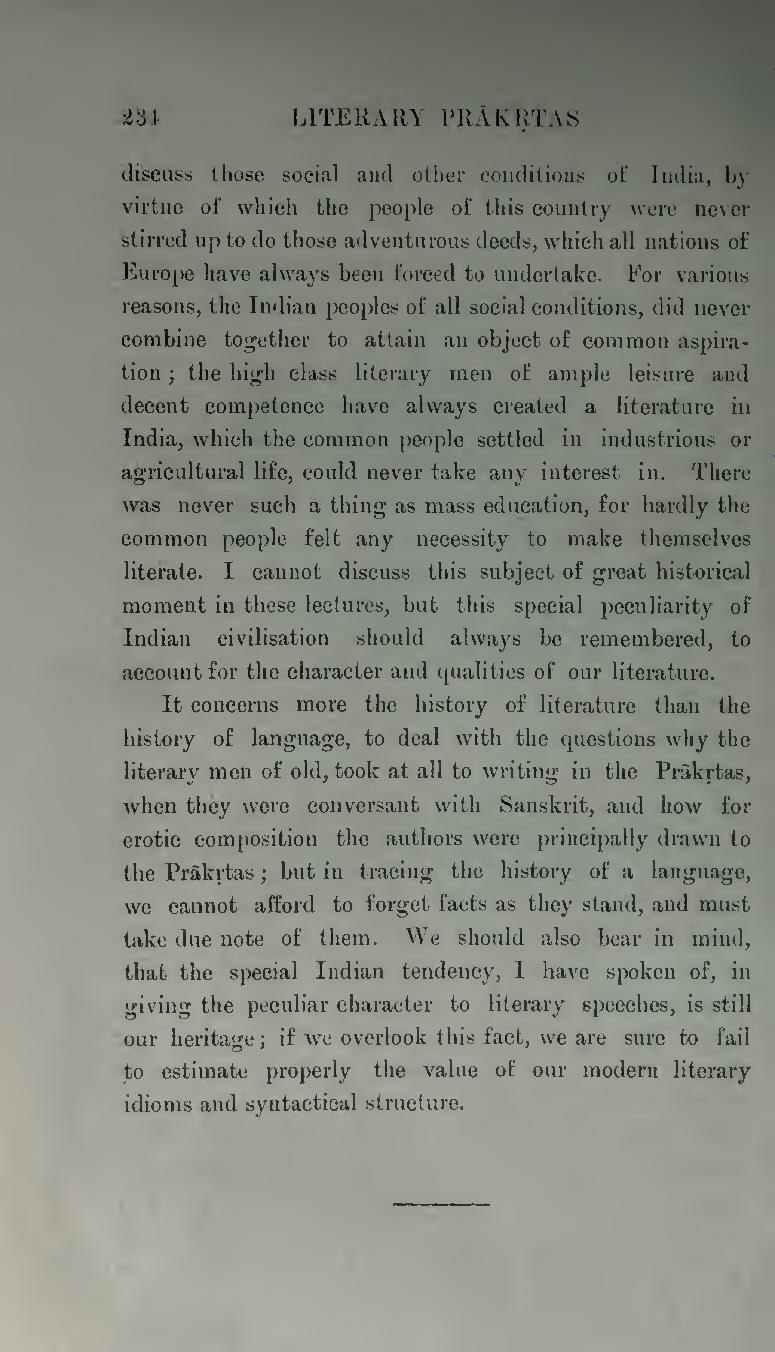discuss those social and other conditions of India, by virtue of which the people of this country were never stirred up to do those adventurous deeds, which all nations of Europe have always been forced to underlake. For various reasons, the Indian peoples of all social conditions, did never combine together to attain an object of common aspiration; the high class literary men of ample leisure and decent competence have always created a literature in India, which the common people settled in industrious or agricultural life, could never take any interest in. There was never such a thing as mass education, for hardly the common people felt any necessity to make themselves literate. I cannot discuss this subject of great historical moment in these lectures, but this special peculiarity of Indian civilisation should always be remembered, to account for the character and qualities of our literature.
It concerns more the history of literature than the history of language, to deal with the questions why the literary men of old, took at all to writing in the Prākṛtas, when they were conversant with Sanskrit, and how for erotic composition the authors were principally drawn to the Prākṛtas; but in tracing the history of a language, we cannot afford to forget facts as they stand, and must take due note of them. We should also bear in mind, that the special Indian tendency, I have spoken of, in giving the peculiar character to literary speeches, is still our heritage; if we overlook this fact, we are sure to fail to estimate properly the value of our modern literary idioms and syntactical structure.
